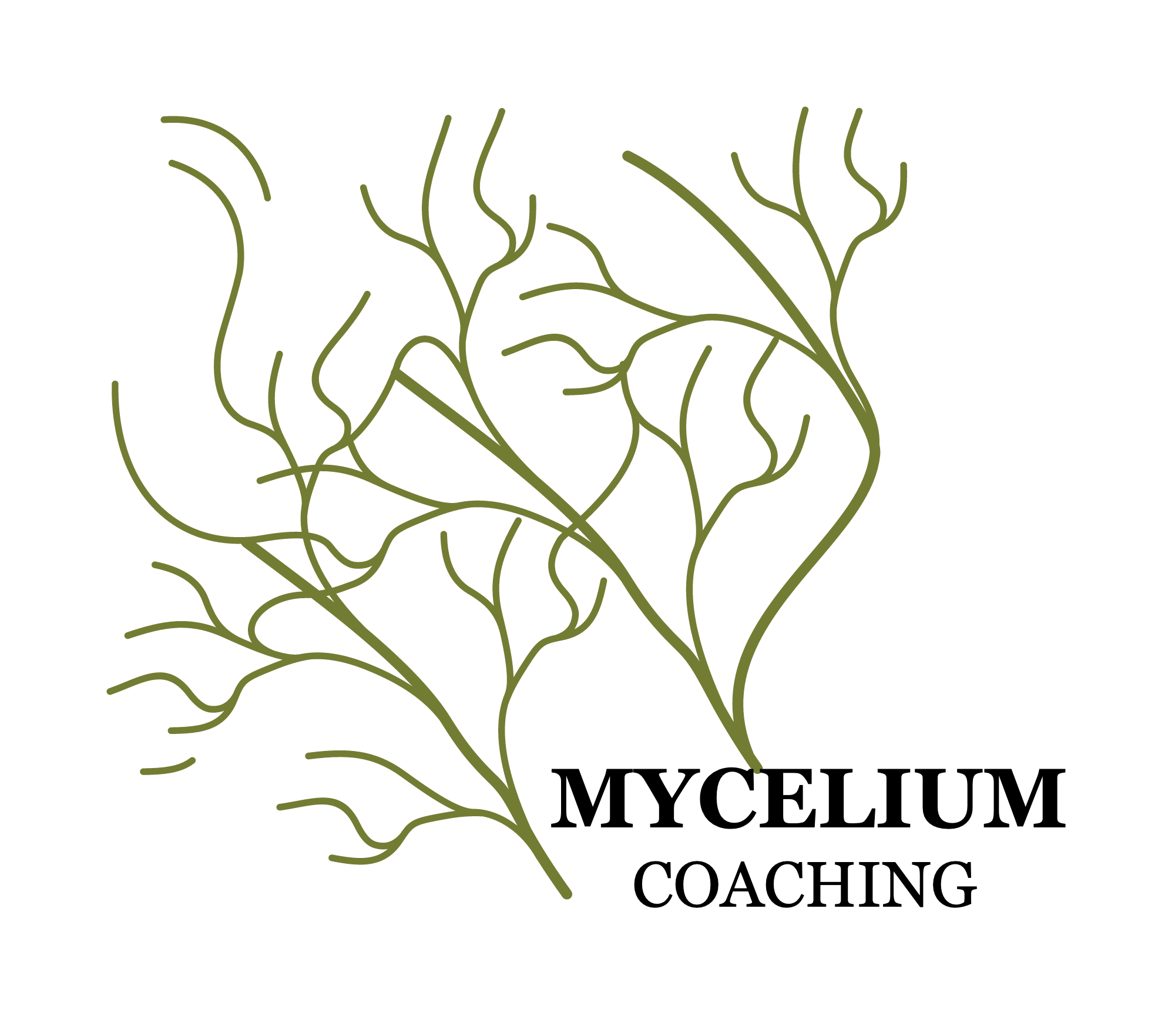
My mum has a friend who recently retired from science to go sailing on his sailboat. Before getting the boat, he tried mountain biking and gave it up. And then he tried kayaking and gave that up too. My mum told me she thinks he needs to stop making bad decisions. I was really curious about what she meant by bad decisions, so I asked her.
This past week I have been making some decisions about my coaching business. I realised that while I have got good at making decisions quickly, my brain still objects every single time.
Both talking to my mum and observing my own process got me thinking about what we mean when we say a decision is bad. Here I share some of the common thoughts are that come up for me and other people I’ve been in conversation with around decision making, as well as some thoughts that make decision making less stressful for me.
Decisions are neither good nor bad
Decisions are neither good nor bad. They just are. Decisions are the branching points of life. They are just choices. In his book Entangled Life, Merlin Sheldrake provides a neat analogy for decision making by considering fungal growth. Fungal hyphae grow by means of a tip extending onwards into the future. The tip is the present, the body of the fungus (the mycelium) tells the story of its past. The present moment of our lives is analogous to that fungal tip – sensing and processing information and deciding what we want to grow towards.
The only thing that determines if a decision is “good” or “bad” is a human brain having a thought about it. People do things that other people think are horrible and think they are making good decisions. People do things that make themselves happy and other people think they are making terrible decisions. All the time. Whether a decision is good or bad really just boils down to our thoughts about it.
This still holds true when many people think a decision is bad. For example, students in Oxford like to jump off a bridge into the river on May Day. Often this results in people breaking their legs. And yet some of those people go on to say in the local news that they don’t regret doing it.
You stop making bad decisions when you stop judging your decisions
One common reason we put off making decisions is because we worry that our future selves will judge our decisions as bad. The way to stop making bad decisions is to stop judging your decisions as bad. It really is that simple. Judging a decision as bad doesn’t change that decision. It doesn’t give you a change to go back in time and do things differently. It doesn’t repair harm. All it does is muddy the waters of your mind.
Here’s something you can try when you notice your brain wanting to judge past decisions. Instead of spinning in judgement, ask yourself what do I want to do differently, given the knowledge I have now?
This question grounds you in the present and focuses on the future, both of which you likely do have some agency over. You have no agency over the past. You cannot change the past by judging yourself. Trust me here, I’ve tried so hard at this. It’s never worked.
A decision is not bad because your parent/partner/friend has an opinion about it
Other people don’t get the final say on whether your decisions are good or bad. Period. Your experiences of trauma and the power dynamics in your relationships certainly affect how you receive and interpret other people’s thoughts about your decisions. You don’t need to stop making bad decisions, though, because you are not making bad decisions.
In patriarchal, capitalist cultures, for example, there is a long legacy of people (especially, but not exclusively men) judging women and gender-nonconforming folks’ decisions as bad (especially for women of colour or other marginalised folks such as single mothers). So, judging your own decisions and/or wanting to take on other people’s judgements of your decisions is not a personal flaw, it’s the system working as designed.
When we are children, adults often DO have a huge influence over what we can and cannot do. As adults, those power-over relationship with parents or care givers are no longer our reality (whatever our parents or care givers might think or say), but unless we have learned new patterns, those power dynamics might well live on in our bodies. Again, noticing these dynamics doesn’t mean anything is going wrong. It gives you data to explore if you feel called.
Decisions that involve financial loss aren’t inherently bad
In Western, capitalist societies, we tend to assume that decisions that cost us money are bad and decisions that lead to a financial gain (for us) are good. This rests on the assumption that having more money is always better. That money is something we need to hold onto at all costs. That is an optional belief.
My question for you if this is something you realise you’ve been thinking is: what shifts if I allow it to be okay that I spent or “lost” money in the past?
I invite you to really sit with this question and feel into your body to notice if anything shifts. It’s super easy to judge “losing” money as bad, because this is so enmeshed in our basic conditioning, but I want you to be curious about what is possible instead.
We overestimate the consequences of making bad decisions
Humans tend to overestimate the potentially undesirable consequences of our decisions. We also tend to dwell on decisions we think are bad for longer than we do ones we think are good. This comes from our human core desires for safety, dignity and belonging. We worry that making a “bad” decision will threaten one or more of these core desires.
Because of this, we can spend a lot of time on decisions that are basically inconsequential to our wellbeing and survival. They feel very real and dangerous to us, though, because our nervous systems can’t distinguish real and present threats from imaginary ones. The fear that we might beat ourselves up in the future for painting our home the wrong colour or missing out on a bargain feels just as real to our nervous systems as the threat of being eaten by a predator. This is because evolution works on a timescale much longer than a single human life.
The way to alleviate this stressor is to -you guessed it!- make a decision. You can decide ahead of time to be happy with whatever decision you make. That may sound trite, but in my experience this one simple sentence alleviates the vast majority of stress around decision-making for me. Even though I hate that this is true almost every time I have to do it.
There is never a perfect decision
I think I say this in every blog post, but–perfectionism is a soul-sucking vampire. There is literally no decision that you can make that will be perfect. Trying to make the perfect decision (whether to please yourself or other people) will eat up all of your time and energy for very little reward. There will be discomfort and problems with every decision you make. Life is a contrast of comfort and discomfort. Sometimes cliches can still serve us.
When we were talking, my mum argued that buying a house that turned out to have major, undetected problems was an example of an objectively bad decision that anyone would regret. This was kind of funny to me, because when we moved to Edinburgh my parents bought a flat that turned out to have major, undetected problems. And they ended up loving it and living there for many years, so my mother remembers this as a great decision.
Someone else’s good decision might suck for you
Decisions that other people think are great might suck for you and that’s okay. I live on a boat. People sometimes think I live on a boat because a boat is all I can afford (to those people: do you have any idea how much boats cost to maintain? No? Go look it up and get back to me). The truth is that I live on a boat because living on a boat has been a dream of mine since I was a kid. It might not be someone else’s good decision, but it’s right for me. I have no idea about my parents’ friend and his sailboat, but I’m guessing he might feel the same way.
Humans like to feel like we belong, and one way of assessing whether we belong is to compare ourselves to others. All of that is okay and also it is often unhelpful. Sometimes we see someone else making a decision that is different to our own and we start to question our decisions. Learning from other people is great, but just remember–we cannot change the past. If you notice yourself getting caught up in comparing your decisions to those of other people, I invite you to ask yourself the question I offered in the section on judgement.
You don’t need to stop making bad decisions, you just have a human brain
If any of the above points resonate with you, then congratulations, you have a human brain. Like all humans, you have some unexamined default thought patterns. Maybe, like me, you’ve spent most of your life thinking you are bad at making decisions (if not, you lucky human you!). None of this means anything is wrong with you or anything is going wrong. It’s literally all just data to play with, if you want to.
In summary, making decisions is the only way for us to move or grow. Not making a decision is, after all, simply a decision to remain right where you are. We often don’t tend to think of not making a decision as a decision, though. Instead, we say we are stuck or bad at making decisions. So, next time you feel stuck, take a moment to send some love to your nervous system for trying its best to keep you safe. And then ask, where do I want to go from here?
Hiya! I’m Jane, I’m an anticapitalist mindset coach. I partner with people to partner with people to support them in building flourishing lives on their own terms, instead of accepting the defaults offered by society. If you like what you read here, please consider supporting my writing via my Patreon page. To find out how to work with me, click here. My writing will always be freely accessible for all to read and your support helps make that happen. Thank you so much!

Recent Comments